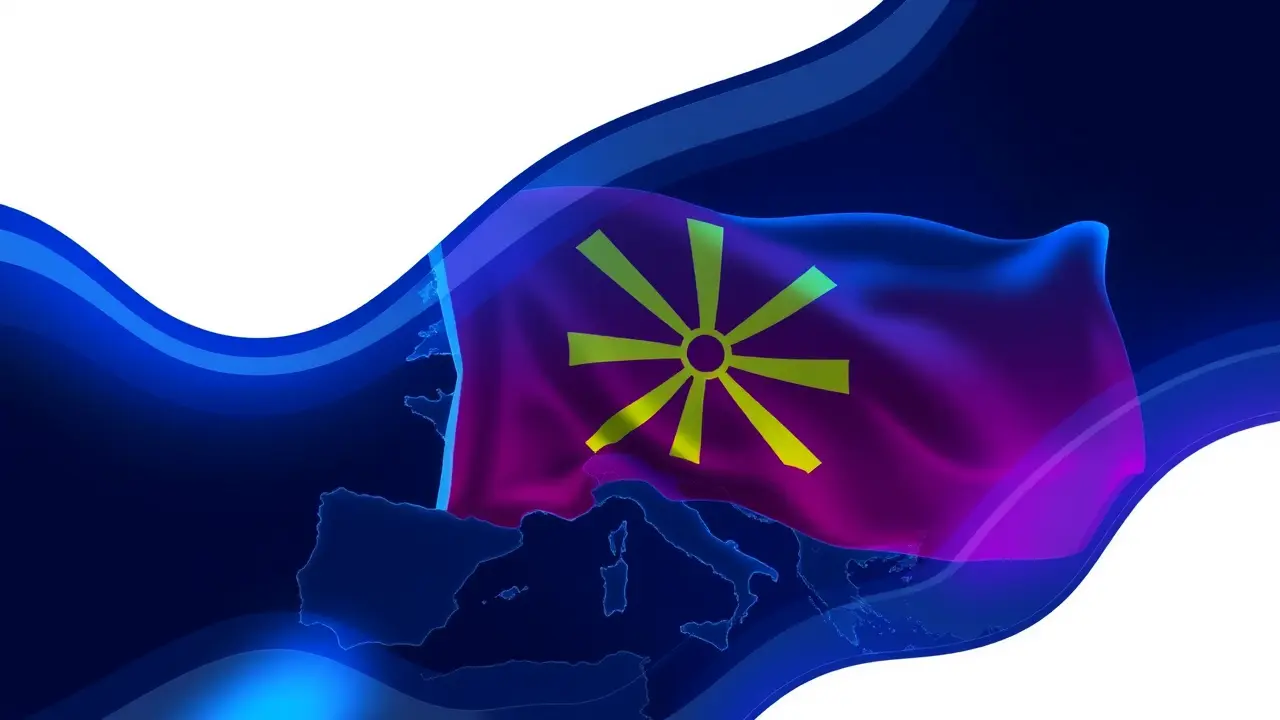
PoliticsdiplomacyBilateral Relations
North Macedonia's EU Bid Stalled by Neighbourly Disputes.
RO
Robert Hayes
2 days ago7 min read
The European Union's eastern expansion, a project once hailed as the definitive triumph of a continent whole and free, has encountered a formidable and deeply historical roadblock in the Balkans, where North Macedonia's long-anticipated accession bid has been effectively stalemated by a bitter dispute with its neighbour, Bulgaria. This is not merely a technical delay over legislative harmonization or market regulations; it is a profound clash over the very bedrock of national identity, language, and history, echoing the kind of intractable ethnic and cultural conflicts that have historically plagued this region.At the heart of the impasse is Bulgaria’s persistent contention that the Macedonian language is a dialect of Bulgarian and its insistence that the shared history of the two peoples, particularly concerning figures and events from the Ottoman era and the Second World War, must be framed within a Bulgarian narrative as a precondition for Sofia lifting its veto. This demand strikes at the core of North Macedonia's sovereignty and its hard-won national consciousness, a sentiment forged in its own struggle for recognition following its peaceful secession from Yugoslavia.The situation is reminiscent of the kind of nationalistic posturing that has derailed European integration before, drawing uncomfortable parallels with the Greco-Macedonian naming dispute that was only resolved with the Prespa Agreement in 2018, a hard-fought diplomatic victory that now seems almost quaint in comparison to the current ideological trench warfare. Analysts observing the corridors of power in Brussels describe a growing sense of fatigue and frustration, as the EU’s consensus-based model is held hostage by bilateral grievances, undermining the bloc's geopolitical credibility at a time when it seeks to project stability and unity in the face of Russian aggression in Ukraine.The consequences of this deadlock extend far beyond Skopje and Sofia; a prolonged freeze on North Macedonia's EU path risks destabilizing the entire Western Balkans, potentially reawakening dormant ethnic tensions and creating a vacuum that other malign actors, namely Russia and China, are all too eager to fill. For North Macedonia, a nation that has repeatedly demonstrated its commitment to the European project by making painful concessions, this latest obstacle feels like a betrayal of the promise that good-faith reforms would be met with progress. The stalemate forces a fundamental question upon the European Union: can it remain a transformative force for peace and integration if its own internal mechanisms allow historical grievances to trump strategic vision? Without a significant diplomatic intervention, perhaps led by France and Germany, this quarrel over language and legacy threatens to become a permanent fixture on Europe's map, a sad testament to the fact that the ghosts of history are often the most stubborn negotiators.
#featured
#North Macedonia
#Bulgaria
#EU accession
#identity dispute
#language recognition
#diplomatic stalemate
#Balkans
Stay Informed. Act Smarter.
Get weekly highlights, major headlines, and expert insights — then put your knowledge to work in our live prediction markets.
Related News
Comments
It’s quiet here...Start the conversation by leaving the first comment.
© 2025 Outpoll Service LTD. All rights reserved.













